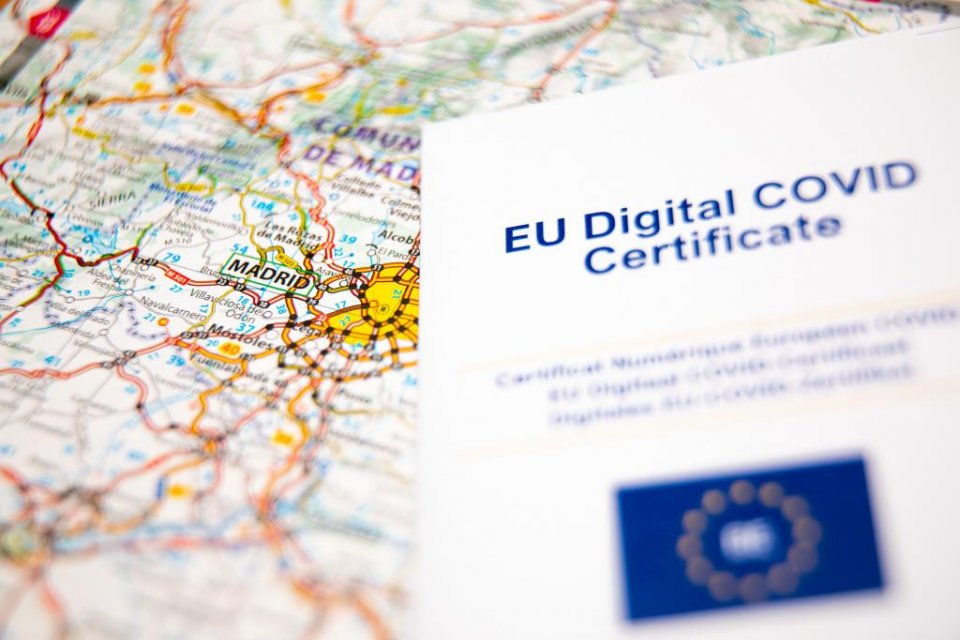Latest: Coronavirus in Spain figures (3 Feb)
Under new non-binding rules for travelling within the EU or Schengen zone, EU countries are seeking to make it easier for anyone to travel with an EU Covid-19 certificate without facing further restrictions such as tests or quarantine.
Ministers endorsed the Council of Europe’s recommendations at a meeting of the General Affairs Council on Tuesday, also agreeing on a new recommendation that countries should base their travel rules on an individual case rather than the region they are travelling from.
The aim of the recommendation is to ‘take into account the advantage of the individual situation of people, especially vaccinated people, and limit for them as much as possible travel restrictions in Europe’, France’s European Affairs Secretary Clément Beaune said, in advance of the meeting.
It would mean those with an EU Covid certificate, proving vaccination, recovery or a negative test, would be allowed to travel freely within the EU or Schengen zone without any need for extra tests or quarantine, even if they were coming from a country with high Covid infection rates.
The recommendation refers only to travel, and not to the domestic health or vaccine passes that many EU countries now require to access venues such as bars or restaurants.
The recommendation is set to come into force on 1 February, as will a nine-month duration period for vaccination certificates following a primary course of vaccines. However, as it will be non-binding, individual EU countries will still be free to impose whatever travel restrictions they feel are required.
Under the EU’s recommendations from 1 February travellers should be able to freely travel to another EU country without any further test requirements or need to quarantine, if they have had their full primary course of vaccination a maximum of 270 days ago (approximately nine months), or if they have received their booster shot.
This also applies to people who have recovered from Covid-19 in the last 180 days, and passengers who have had a PCR test 72 hours before arriving or an antigen test 24 hours before.
Those without an EU Covid certificates could face extra testing requirements, although the EU recommends essential workers, cross-border commuters and children under 12 should be completely exempt.
One exception will be countries in the highest ‘dark red’ category of the European Centre for Disease Prevention and Control’s colour-coded risk map. Currently, most of the EU falls into this category – however the map will soon be modified to take into account a country’s vaccination rates when determining risk level.
Click here for all our reports on: Coronavirus in Spain
Nous avons aussi adopté une recommandation pour faciliter les déplacements dans l’🇪🇺 des personnes vaccinées #COVID19 pic.twitter.com/8PuCFBWDKg
— Clement Beaune (@CBeaune) January 25, 2022
Sign up for the FREE Weekly Newsletter from Spain in English.
Please support Spain in English with a donation.
Click here to get your business activity or services listed on our DIRECTORY.



